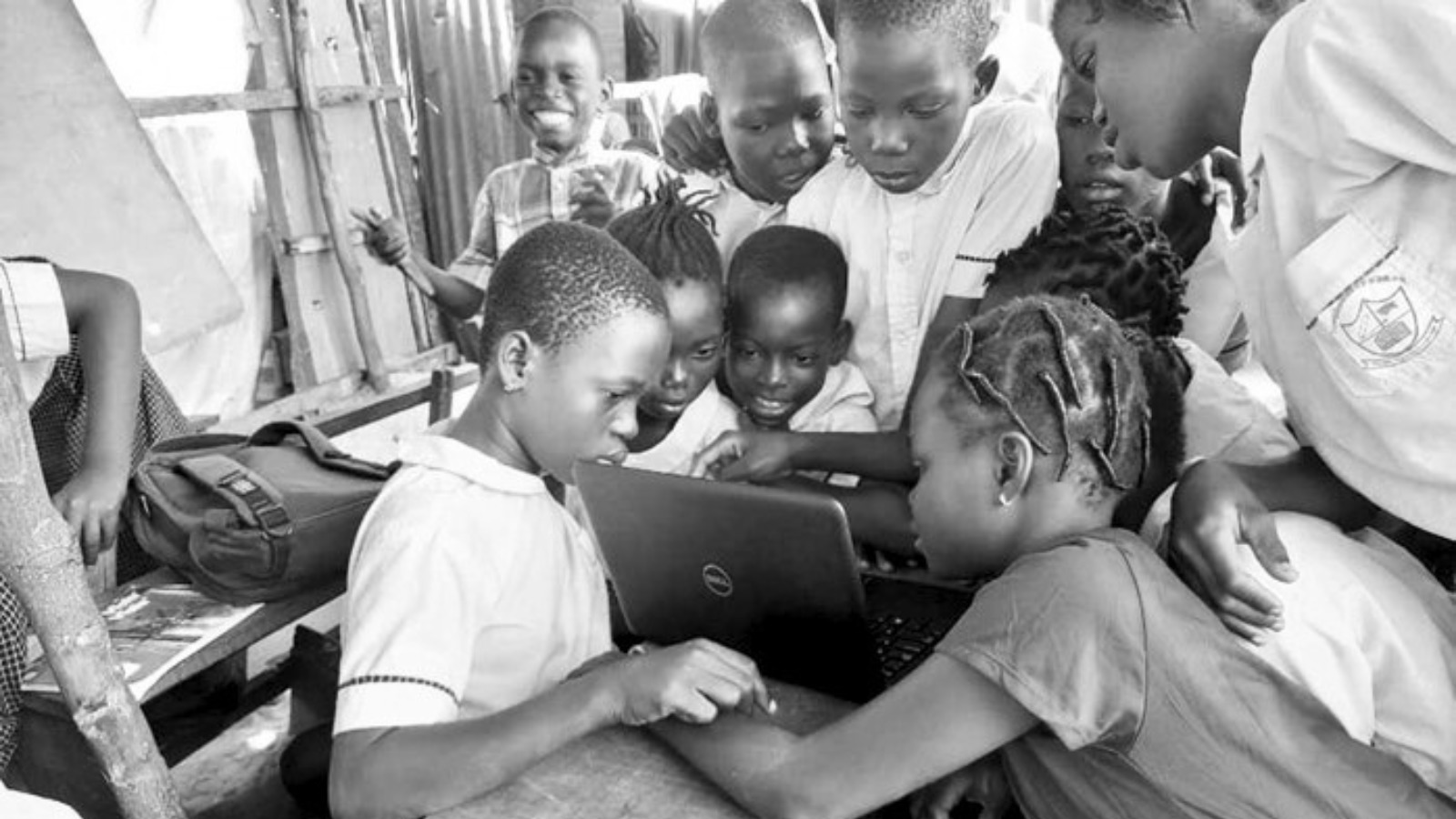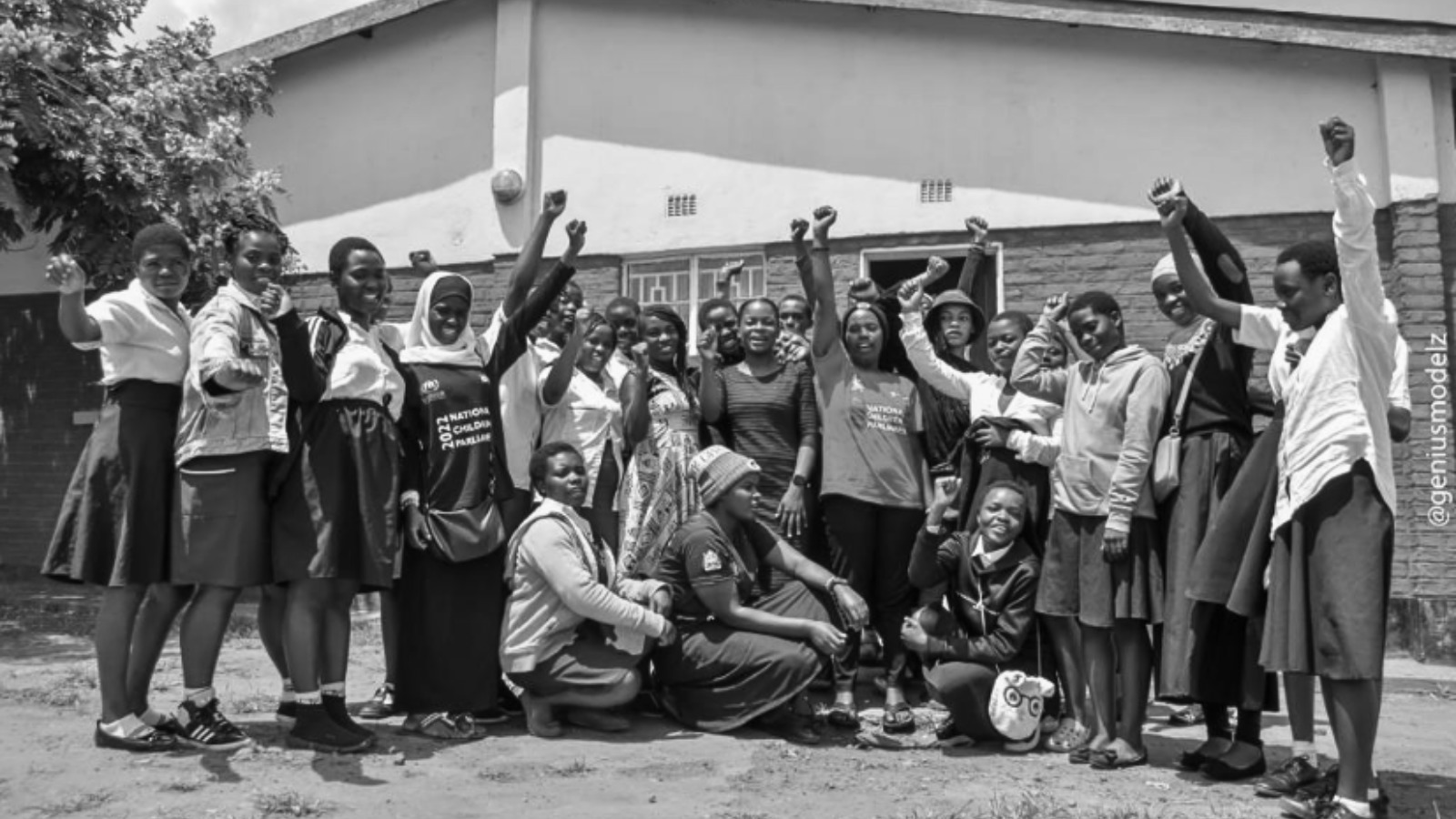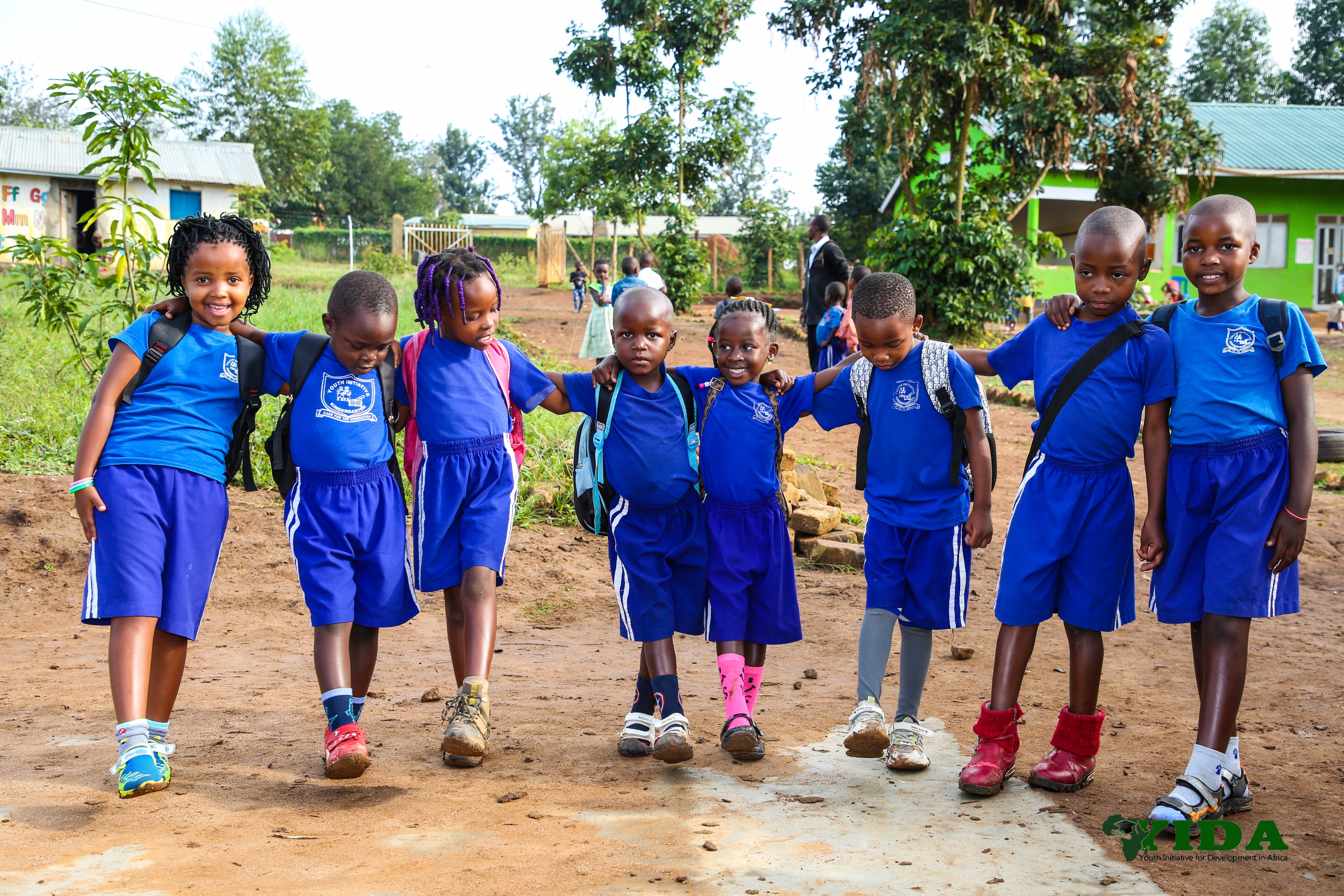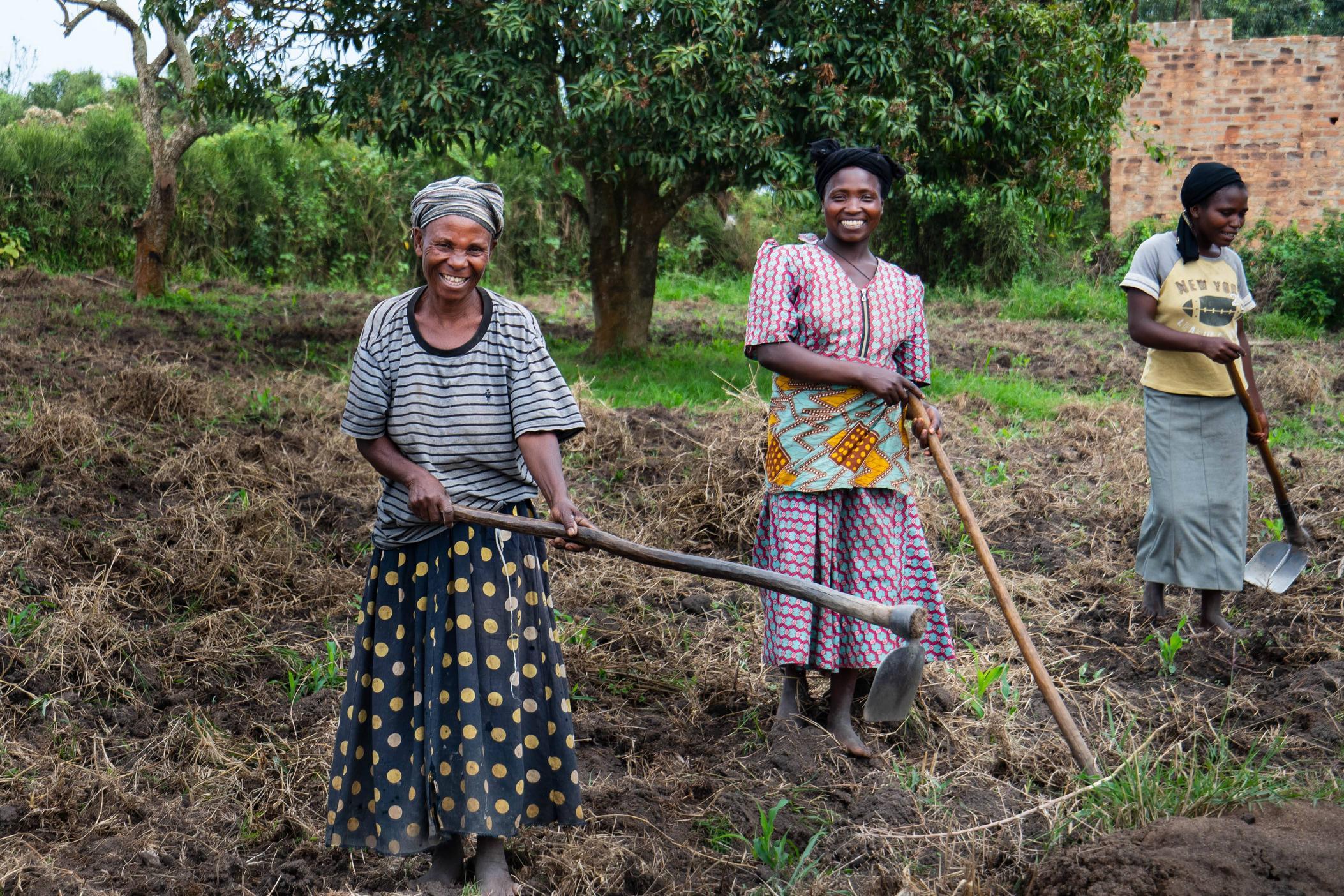
At the crossroads of climate justice, skills development, and women's empowerment, Resilience Action International is crafting sustainable solutions for a greener environment and a brighter tomorrow. Gloria Mairura, RAI's Business Development and Communications Manager, interviews two programme participants to understand their impact and their message to the world.
By Gloria Mairura
This story is part of the co-branded story series, 'Rewriting the Narrative: Stories of & from Refugee and Community-Led Initiatives' a collaborative effort betweenSamuel Hall, Youth Voices Community, Cohere, and Reframe Network. Members of various Refugee and Community Led Organisations (RLOs) participating in the Reframe Network underwent an introductory training in storytelling and advocacy. They were then invited to share their personal narratives, capturing their journey, work, and the lasting impact of their initiatives. This collaboration aims not only to spotlight them but also to empower them with the skills to share their own stories effectively, fostering greater support, funding, and opportunities for their vital work.
This story highlights one RLO’s work in Kakuma, Kenya on climate change - Samuel Hall seeks to elevate their voice and connect them to those who can support them in amplifying their social impact.
Climate migration has been and continues to be a significant factor contributing to migration in East Africa. Several young refugees recount experiences of climate-related migration as their first reason for leaving their homes.
This phenomenon also applies to those already within the camp, who find themselves displaced for a second or subsequent time within the camp, primarily due to natural disasters, such as flash floods or powerful winds in the Kakuma region.
People here often struggle to make a living in ways that are different from what they were used to in their home countries. This challenge is particularly pronounced for those who previously worked as farmers, pastoralists, or fishermen and have had to adapt to life in hot and arid regions like the Turkana county - where Kakuma Refugee camp is located.
In an effort to resolve some of these issues, in 2010, Muzabel Welongo, a refugee from the Democratic Republic of Congo, established Resilience Action International (RAI) in Kakuma, Kenya. Over the years, RAI has earned a reputation as a refugee-led organisation by focusing on enhancing the economic resilience of youth.
Kakuma's challenging environment, characterised by a semi-arid climate with temperatures averaging 40 degrees Celsius and an annual rainfall average of 200mm, underscores the need for environmental conservation and sustainable, eco-friendly economic activities. RAI's economic empowerment initiatives are crucial steps toward mitigating the impacts of climate migration within the displaced Kakuma community.
To address the lack of access to clean energy for refugees not connected to the national electricity grid, RAI, through its subsidiary Okapi Green Ltd, is distributing solar power to homes and small businesses in Kakuma 3. This initiative aims to replace costly and environmentally damaging alternatives like candles, diesel generators, and charcoal.
I have always believed that climate change is a serious yet an often overlooked issue as refugees and asylum seekers in Kakuma face many challenges due to the climate crisis, in addition to their existing vulnerability. Working with RAI has given me the opportunity to connect with brilliant refugee youths and learn more about displacement first-hand.
To assess and document their own influence, I, on behalf of RAI, engaged in conversations with two people from the camp to explore their personal journeys; the effect RAI has had on their lives and how they think international organisations can support community-led initiatives of green transition.
Local Solutions For Global Problems: Interview with Ardiya
-Ardiya (in a green Okapi shirt) demonstrating to learners how to operate a domestic solar kit in Kakuma 3 training centre.
27-year-old Aridya arrived in Kakuma in 2012 from Sudan. He currently works at Okapi Green Ltd as a Project Lead. Along with his teams, he provides training to youths in Kakuma refugee camp on operating and maintaining portable solar-powered kits for domestic use.
Q1: Have you ever been forced to relocate due to extreme weather events?
A: Yes, indeed. Part of the reason for our move to Kenya was the mudslides and frequent flooding in the lowland area of Sarbuye in Sudan. This area was known for its plantations and fruit trees but was prone to flooding due to rivers and streams that overflowed in rainy seasons. Villagers had to relocate to the higher hill region of Nuba Mountains to escape the devastation caused by mudslides and flooding on their livestock and animals.
Following the mudslides, there was often a period of starvation as food crops and most domestic animals perished during the event or later due to hunger. At one point, even the village chief advised families to move out of the valley.
Q2: How did this experience shape your life in Kakuma?
A: Upon arriving at Kakuma refugee camp, we were allocated a piece of land in Kakuma 1, close to a seasonal stream that divided the camp. This larger stream collected rainwater from nearby secondary schools and the two smaller streams, causing flooding and impassable paths during heavy rains. In 2015, we moved to Kakuma 3 with the help of our block leader and camp authorities.
I have adapted to the hot and dry climate in Kakuma, but I still struggle with the strong, dusty winds that can blow away roofs. I've seen neighbours lose their 'mabati' homes to these winds in Kalobeyei. Others have had to rebuild their brick houses after heavy downpours in the camp. We don't have many relocation options, so we have to manage as best as we can.
Q3: How did you get involved with RAI and Okpai Green?
A: I became aware of RAI, through public posters and colleagues who worked there. I was in high school at the time and would pass by the RAI centre in Kakuma 2 to visit friends. Additionally, I worked as a facilitator for RAI on a five-month project in 2022 before applying for a job with Okapi Green Ltd in 2023.
I chose Okapi Green Ltd because its mission and vision aligned with my passion. I hold a bachelor's degree in Education in Mathematics and Physics from Kenyatta University, and Okapi had the right job for me. Furthermore, I have the opportunity to facilitate workshops and witness physics in action through solar power technology. It's remarkable how simple technology can generate significant power without harming the environment.
Q4: How has RAI influenced your thoughts on Climate Migration?
A: Working with Okapi Green Ltd, to promote the use of renewable energy in homes and small businesses has shown me how ordinary people can access clean and natural power. It's my hope that I can apply this knowledge back in Sudan, where we could harness floodwaters to generate power, much like we've harnessed the sunny weather in Kakuma for a positive purpose.
Additionally, I'm interested in pursuing a master's degree in natural sciences in the near future. I've come to believe that both for-profit and nonprofit organisations should adopt environmentally friendly strategies and structures in their activities to reduce harm and protect the environment in the areas where they operate.
"Youths are the drivers of change. It's up to us to be creative in adopting and developing conservation measures that protect the environment and our homes."
Q5: What efforts do you see the refugee communities and RLOs making in the camp around climate change and mobility and how can the international community support them?
I have seen local organisations within Kakuma refugee camp working with the National Council of Churches of Kenya (NCCK) to assist people affected by strong winds and flooding in the camp to build sturdy shelters that can withstand extreme winds and heavy rainfall without disintegrating or leaking.
Furthermore, RLOs are collaborating with small self-help groups and communities affected by flooding and impassable roads. They are working together to dig ditches that divert flood water away from residences, preventing the need for repeat relocations each time the rainy season begins.
Refugee communities in Kakuma 3 are exploring and adopting renewable energy technologies from local CBOs, such as solar power from Okapi Green Energy Ltd. By doing this, we hope to reduce reliance on non renewable fuels such as candles, kerosene, and charcoal by refugee locals at home and in their shops.
I think various organisations can help the refugee leaders with climate change. They can fund and teach youths necessary skills to implement and sustain climate projects in Kakuma. It's a good idea for them to work with RLOs for more grassroots level impact. After all, we're all working together towards the same goal, that is, to stay safe from climate changes."
No Climate Justice Without Gender Equality: Interview with Sharlotte
(Sharlotte awarding her student in the reproductive health class with a certificate and sanitary towel wrapped in a brown envelope)
Sharlotte Lotombo, a 23-year-old student currently pursuing a Bachelor of Arts degree at Kenyatta University in Nairobi arrived in Kenya in 2010 with her family. They had fled the Democratic Republic of Congo due to civil unrest and challenging living conditions. Sharlotte joined RAI as a volunteer after completing high school in 2022. Later that year, she transitioned to a staff role facilitating Sexual and Reproductive Health due to her outstanding work performance in the department.
Q1 Have you ever had to move because of extreme weather events?
Yes, indeed. In DR Congo, we lived in Baraka Province near a river. Heavy rains came after several months of drought, causing floods in our village. Along with our neighbours, we had to move to higher ground because our house was flooded, and some villagers lost their possessions and crops.
I kept in touch with some neighbours and learned that some had migrated to neighbouring countries. The flooding destroyed crops and granaries, and many farm animals drowned. Survivors faced food shortages and starvation, both for themselves and their animals.
Q2: How did this experience affect your life in Kakuma?
I remember Baraka Province being lush and green, a stark contrast to Kakuma, which is dry and windy year-round. DR Congo is a very green country, so moving here was quite different. In 2010, Kakuma had few trees, especially in the camp, so we felt the full force of the sun and wind.
However, Kakuma has changed since I arrived. The camp has more trees and shrubs due to tree-planting initiatives led by the refugee community and non-profits. This gives us shade and helps us escape the hot weather.
Q3: What made you choose RAI for your personal and career development?
I first heard about RAI in 2016. They ran a Youth Reproductive Health program at my primary school, and I joined it. I was trained to be a peer educator when I was in class 7.
RAI's sexual and reproductive health (SRH) program helped me complete my basic education. It taught me about abstinence, self-confidence, and self-understanding as an adolescent. I realised that my life is in my hands, and I have the power to influence it. My strong connection with RAI deepened when its founder, Muzabel Welongo, visited my home in 2016, spoke with my mother, and convinced her to let me join the SRH program and become a peer educator.
In 2022, I volunteered with RAI for three months after high school and worked as a Youth Reproductive Health facilitator for another five months. RAI opened my eyes to new career and education opportunities beyond the camp and gave me a deeper understanding of the refugee community and human rights.
Q4: How has RAI influenced your thoughts on Climate Migration?
RAI has shown me how climate change and women empowerment are connected. I learned that women have more difficulties in coping with and migrating from climate disasters, due to their heavy childcare responsibilities and limited resources. They also face more legal, social, and physical risks when they are displaced by floods or droughts.
Therefore, RAI’s sexual education and community campaigns are vital for young women and girls. They teach them their rights, and how to protect themselves and their children in times of crisis. RAI sexual and reproductive health and vocational education keeps girls in school which exposes them to climate action programs such as environmental clubs and leadership labs. This way, they can become future champions in fighting climate change alongside women’s rights.
My experience with RAI encouraged me to think creatively and understand that creating a positive impact in society is a collective effort, not an individual one. I believe that global warming, worsened by increased carbon emissions, especially in towns and industrial areas, has contributed to the unpredictable weather patterns we experience today. People should collaborate to plant trees and care for the environment, ensuring a better future where no one is forced to leave their homes.
“I believe you can plant a tree but if you don't take good care of the tree, it will die. On the other hand, if you plant a tree and take care of it, it will grow. That is what we as youths, should do.’’
Q5: What efforts do you see the refugee communities and RLOs making in the camp around climate change and mobility and how can the international community support them?
The community has been taking various efforts of planting trees in homesteads, next to kiosks or in eateries to keep the area cool, and break strong winds notorious for demolishing rooftops. Some of the tree seedlings come from local CBOs that have nurseries within the area.
Also, the RLOs here help us in harvesting rainwater in the dry seasons by training families and kitchen garden owners on the skills and tools needed to make this possible. They have taught us how deforestation can harm us and our environment, and how we can grow crops and trees that prevent soil erosion and keep the river’s tributaries banks from expanding.
The international community can support RLOs by working together with them to carry out the ongoing projects in the camp. Great work is being done by refugees, but local initiatives lack the financial muscle to boost the projects. I believe foreigners can benefit and learn from us by working with RLOs’





